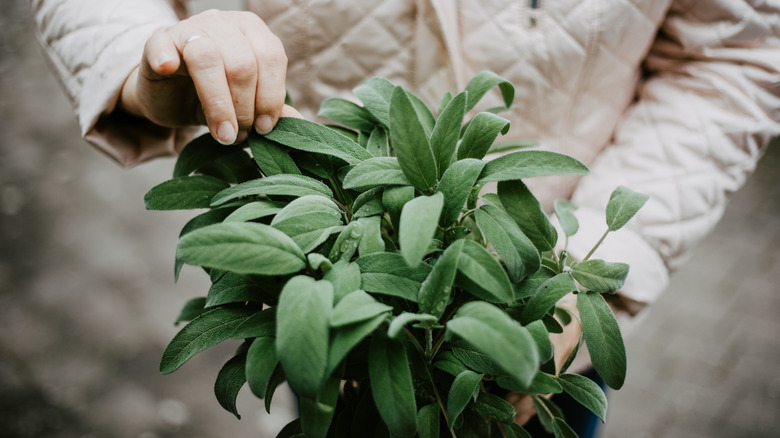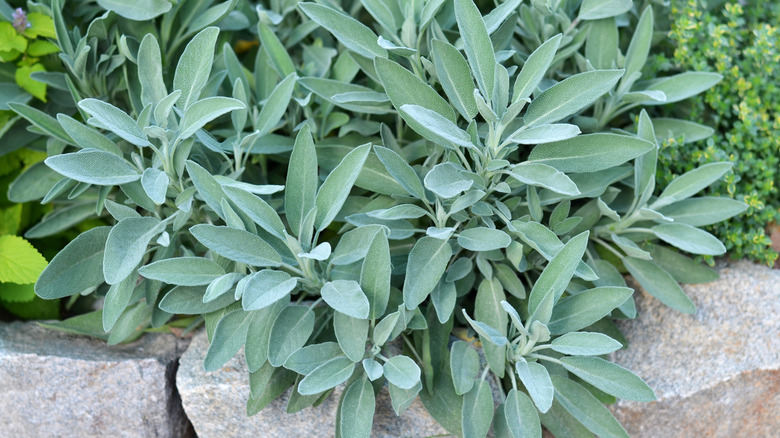Why Gardeners Swear By Fragrant Sage To Keep Ants Away (And Does It Work?)
A sudden invasion of ants in your garden can be a real headache. Although there are benefits to having some ants, they can also cause harm. Ants encourage aphids and they can damage your plants by eating the leaves. In addition, ants can nest in areas that would disrupt plant growth. But there is a solution that some gardeners find effective: sage. Unless you are a skilled chef, you probably don't use a lot of sage. As it turns out, garden sage (salvia officinalis), is a great way to stop ants from invading your yard. One of the best ways to use sage around your garden is as a pest control. It can also be used as a fantastic fragrant herb in the kitchen. Not only does it smell great, but it is potent enough to ward off insects.
Some gardeners do not wish to use chemicals, so establishing a few strategically placed sage plants could be a natural way to get rid of ants. And the best part? The herb will look absolutely beautiful while doing its job. Plus, it's a perennial so plant it once every few years and then you can forget about it (aside from the occasional harvest when a recipe calls for it). Planting sage in your garden can offer many benefits and it should have the ants fleeing in the opposite direction.
Sage as an ant repellant and other pros and cons
Sage is packed with volatile oils such as thujone and camphor, which ants despise. A study by the National Library of Medicine suggest it could even be toxic. But while the scent of sage might irritate ants enough to keep them moving, it can also encourage the arrival of other bugs. Gardeners have noticed that sage can attract snails and slugs, two pests that love to snack on the herb, particularly its soft new growth in damp conditions, so be wary of creating a new problem for yourself.
On the flip side, sage may encourage pollinators to visit. Bees, for example, love sage flowers. Planting some in your vegetable garden may be beneficial because more bees mean better pollination for tomatoes, zucchinis, and whatever else you are growing. Just be mindful where you plant sage because it needs good drainage, full sun, and space to breathe which are common mistakes people make when growing sage. Sage is not a needy plant, but you have to help it flourish.
So, will sage definitely keep ants away? Many gardeners believe it will. However, without further scientific studies backing up the claims, it's all anecdotal. But it smells good, looks pretty, supports pollinators, and there is a high probability it will repel ants without using harsh chemicals. And for those reasons alone, it is worth a shot.

